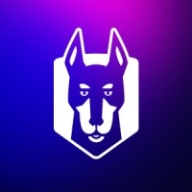

OpenText Dynamic Application Security Testing and Snyk are competing products in the application security testing space. Snyk seems to have the upper hand with its superior features and agile deployment, making it more appealing to feature-focused and agile teams.
Features: OpenText provides comprehensive testing capabilities integrating well with enterprise systems and excels in enterprise-level deployments. It supports extensive testing across complex systems and offers a centralized dashboard for security management. Snyk stands out with its extensive open-source vulnerability database and seamless integration with development tools. It offers comprehensive vulnerability reports, Slack notifications, and Docker integration, making it suitable for modern development environments.
Room for Improvement: OpenText could enhance its flexibility and modernize its deployment models to cater to agile teams. Improving integration with contemporary development tools would be beneficial. Snyk could expand its feature set to match the extensive library of some competitors and improve its customer support responsiveness. Pricing could also be adjusted to remain competitive while offering on-prem options at a lower cost.
Ease of Deployment and Customer Service: OpenText offers a traditional deployment with detailed setup guidance and structured customer support, suitable for enterprises. Snyk provides an agile deployment model, facilitating quick setup and user onboarding with responsive customer service, enhancing its value for teams seeking rapid deployment and integration.
Pricing and ROI: OpenText offers competitive pricing, providing high ROI for large organizations requiring extensive testing. Snyk, though potentially higher in cost, delivers significant ROI through its efficiency in handling vulnerabilities, appealing to businesses that emphasize long-term security strategy over initial cost savings.
| Product | Market Share (%) |
|---|---|
| Snyk | 22.9% |
| OpenText Dynamic Application Security Testing | 5.8% |
| Other | 71.3% |


| Company Size | Count |
|---|---|
| Small Business | 7 |
| Midsize Enterprise | 1 |
| Large Enterprise | 15 |
| Company Size | Count |
|---|---|
| Small Business | 20 |
| Midsize Enterprise | 9 |
| Large Enterprise | 21 |
OpenText Dynamic Application Security Testing offers robust scalability, ease of use, and high accuracy in scanning, making it a valuable tool for enterprises.
This security testing platform is known for its centralized dashboard, guided scans, and comprehensive reporting. It integrates seamlessly with tools like Fortify code scanner and supports extensive vulnerability detection and analysis, enhancing efficiency in security management. Despite its strengths, users suggest improvements in cloud integration, cost-effectiveness, and installation processes. Faster scans, reduced false positives, and improved mobile testing features are also desired.
What are the key features of OpenText Dynamic Application Security Testing?In industries like BFSI, OpenText Dynamic Application Security Testing is employed for performance network application testing, dynamic and static application security testing, and code checks. Security and QA teams use it in development processes to ensure application security prior to release, proving integral in both enterprise and testing environments.
Snyk's AI Trust Platform empowers developers to innovate securely in AI-driven environments, ensuring rapid and secure software development with enhanced policy governance.
Snyk’s platform integrates AI-ready engines across the software development lifecycle, offering broad coverage with high speed and accuracy essential for fast-paced coding environments. AI-driven features include visibility, prioritization, and tailored security policies that enable proactive threat prevention and quick remediation. By focusing on LLM engineering and AI code analysis, Snyk supports secure and productive development processes. The platform's partnerships, including GenAI code assistants, enhance AI application security by addressing new threats and code velocity challenges.
What are the key features of Snyk?Snyk is implemented across industries focusing on agile development and DevSecOps, enhancing software delivery speed and security. It is widely used for continuous monitoring and adherence to security and licensing standards, especially in environments relying on Docker image security and CI/CD pipeline integration.
We monitor all DevSecOps reviews to prevent fraudulent reviews and keep review quality high. We do not post reviews by company employees or direct competitors. We validate each review for authenticity via cross-reference with LinkedIn, and personal follow-up with the reviewer when necessary.